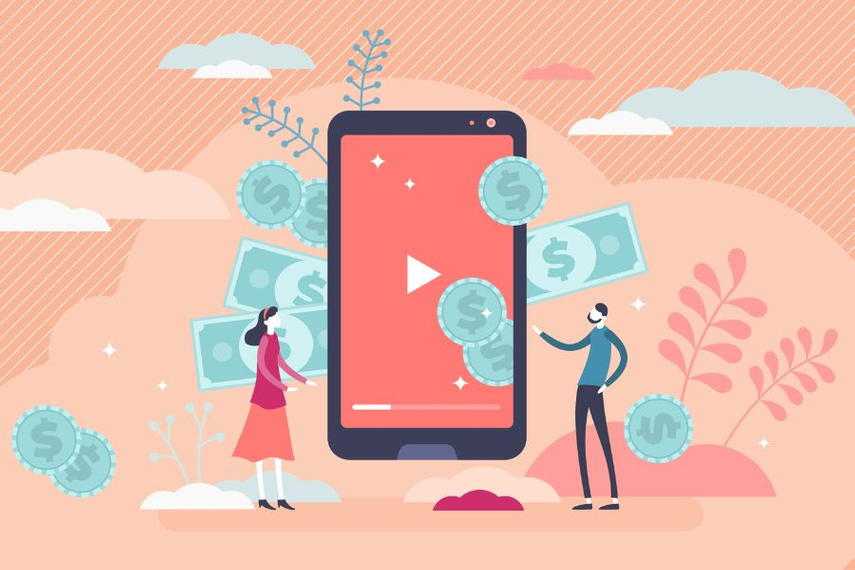
The rise of content creation has revolutionised global operations, empowering individuals to market, advertise, and create on social media. This burgeoning industry has fueled online careers and birthed the creator cconomy—a network of independent creators, influencers, and entrepreneurs monetising their skills and creativity across digital platforms. Remarkably, this is a concept that was scoffed at less than five years ago.
There's a significant shift from traditional jobs to a world where people can create successful businesses doing what they love and know best, with a handful of active income as well. According to Goldman Sachs, the creator economy could reach $480 billion by 2027. Its emergence is shaping marketing plans and impacting various sectors and online platforms. Tech firms are developing tools to support creators, while social media sites are introducing new monetisation methods. This surge in the creator economy is fueling innovation and partnerships across industries.
The rise of social media and monetisation
The creator economy, tracing its roots back to 1997, has become notably perceptible in the last seven to eight years, especially with the rise of platforms like YouTube, Instagram, and Twitter in the late 2000s. The advent of TikTok further democratised social content, showcasing talents from the smallest towns, previously the stronghold of celebrities. These platforms have redefined how creators engage with their audiences, offering spaces to showcase talents and promote global communities, importantly unshackled from the constraints of good looks and celebrity backgrounds.
The content and audience acceleration opened new income streams for creators through brand partnerships, sponsored content, and ads, democratising monetisation and enabling sustainable careers. The growth of the creator economy started from increased internet access and digital technology adoption, expanding audiences and opportunities in a dynamic landscape shaped by digital platforms.
Driving forces
As the creator economy grows, several factors contribute to its success and its potential to reshape advertising and digital marketing strategies:
- Monetisation of content: Many platforms now help content creators monetise their work. For instance, YouTube helps creators connect their streaming services with fortune-making tools.
- Empowerment of content creators: Creators work independently, needing only easily accessible tools without market oversight on authenticity or credibility. This democratisation allows creators to monetize their work effortlessly.
- Connection with the audience: Creators have a direct connection with their users, understanding their preferences and presenting content from the audience's perspective. This connection also aids firms in leveraging creators for increased product sales, benefiting creators monetarily.
- Rise of social media platforms: According to Demand Sage, there are 5.17 billion social media users globally, over 63% of the world's population. This number is expected to reach 5.42 billion by the end of 2025.
Digital marketing making fortunes
Digital marketing enables creators to focus on influencer marketing, helping brands collaborate with creators to reach more audiences authentically and credibly. Partnerships with creators who share brand values help businesses establish stronger connections with their target audience and supporters, aiding brands in creating top-notch content more swiftly than traditional methods.
The rise of the creator economy in India
Post-pandemic, India's creator economy has thrived, with individual creator growth exceeding 115% annually, forecasting one million creators with 100,000 followers within three years. This growth promises a stable digital income compared to full-time jobs, empowering the middle class and offering young individuals across the country newfound opportunities in the creator space.
Upcoming challenges
Within the flourishing ereator economy, creators face an abundance of opportunities and obstacles. Challenges include generating innovative content ideas, ensuring the authenticity of collaborating brands, maintaining consistent user connections, upholding content quality standards, and efficiently managing their entrepreneurial ventures. Overcoming these hurdles requires collaborative efforts and the cultivation of a supportive ecosystem.
The future
As technology advances, so will the creator economy. The shift from daily jobs to digital creation has empowered individuals to work independently and earn. While creators face their own challenges, the future appears promising. The scope of content creation will expand beyond daily vlogs, marketing, blogs, and infographics to include AI-powered analytics and tools, helping creators make informed decisions, connect with their audiences more effectively, and enhance content quality.
Kalyan Kumar is the co-founder and CEO of KlugKlug— a platform that assists brands in identifying the ideal influencers to effectively promote their marketing strategies.



.jpg&h=334&w=500&q=100&v=20250320&c=1)


.png&h=334&w=500&q=100&v=20250320&c=1)



.png&h=334&w=500&q=100&v=20250320&c=1)

.png&h=334&w=500&q=100&v=20250320&c=1)

.jpg&h=268&w=401&q=100&v=20250320&c=1)





.png&h=268&w=401&q=100&v=20250320&c=1)